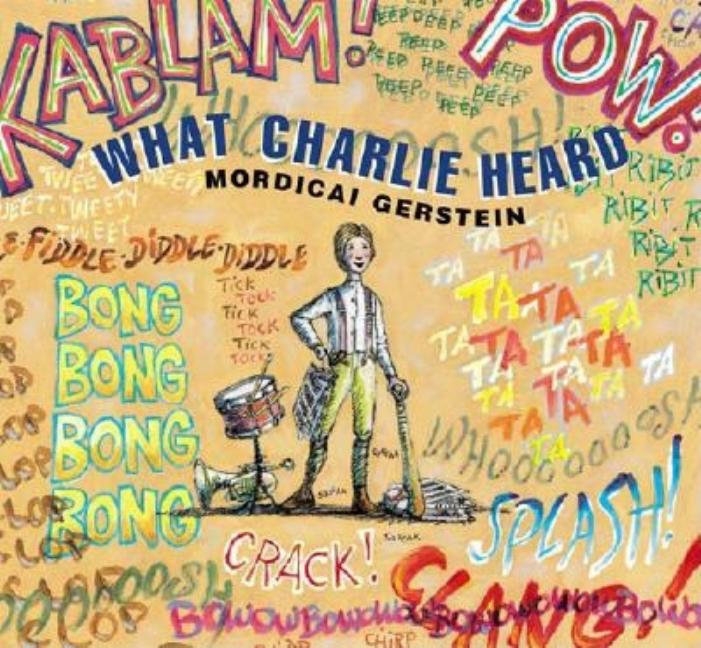Book Descriptions
for What Charlie Heard by Mordicai Gerstein
From Cooperative Children's Book Center (CCBC)
"Charles Ives was born with his ears wide open," begins Modicai Gerstein's rousing picture book biography of the singular American composer. The lively narrative is full of the sounds that Charlie heard from his infancy through his boyhood and adulthood to the final years of his life. The text incorporates a catalog of sounds on page after page as the story moves forward with energy and ease ("He heard his father's fiddle and the spring peepers. He heard church bells, fire truck bells, the ice cream's man's bell, and the train's bell and whistle."). The backdrop for the words on each two-page spread is Gerstein's exceptional artwork, in which a cacophony of sounds are incorporated into the images of Ives's life ("Ratattat," "Riinng!" "Whooooooosh"). When Ives's beloved father died, Gerstein writes, "Charlie heard a great silence." The page is silent, too–the absence of "noise" heightening children's understanding of the emotional impact of that event. Although Ives’s music wasn’t initially well-received, he lived long enough to see attitudes begin to change. Gerstein's volume is an invitation to young readers and listeners to open their ears to the world around them, and to Ives's music, too. Honor Book, CCBC Caldecott Award Discussion (Ages 5-9)
CCBC Choices 2003 . © Cooperative Children's Book Center, Univ. of Wisconsin - Madison, 2003. Used with permission.
From the Publisher
Mordicai Gerstein narrates his innovative portrait of a musical maverick in this latest release from Live Oak Music Makers. This daring and original book tells the story of Charles Ives, a great twentieth-century composer who, despite criticism and public scorn, composed music that expressed what he heard in the world. Others didn't always hear the music that Charlie heard -- they heard only noise. Later in his life, his work was accepted and he won a Puliter Prize in 1947.
Publisher description retrieved from Google Books.


